After struggling to finish Divinity: Original Sin 2 the first time, I've fallen in love with Larian's previous hit RPG—and it isn't just the Baldur's Gate 3 afterglow
After running out of Baldur's Gate 3 and still craving more, I turned to the hair of the dog in Larian's 2017 dinger.
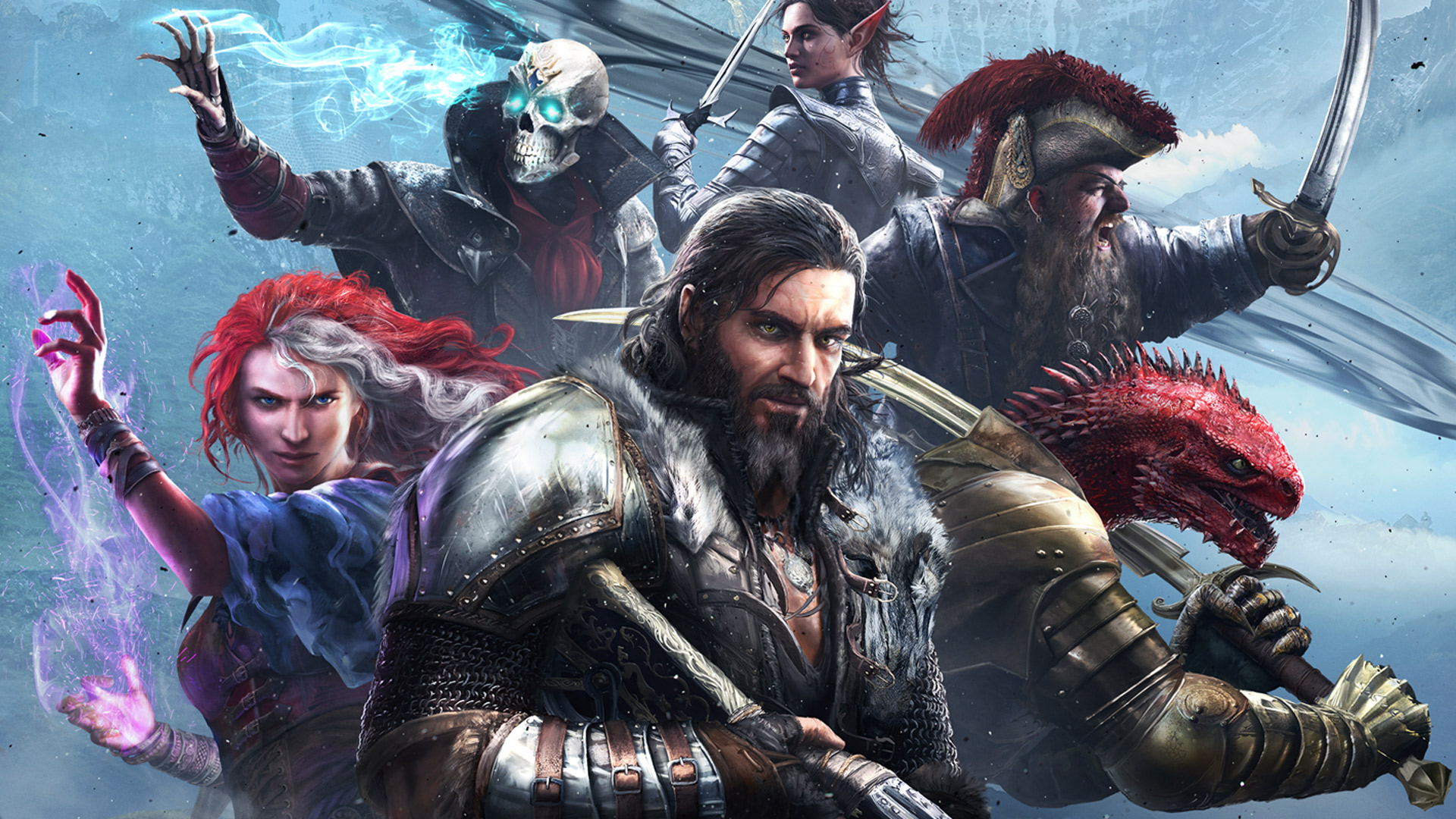
After my Baldur's Gate 3 bonanza in August and September, I was Baldur's Gate 3 hungover, and needed the videogame equivalent of a Full English Breakfast to fill the Baldur's Gate 3-shaped hole in my being. I turned to Larian's previous RPG hit, Divinity: Original Sin 2.
I'd known I had to give our 2017 game of the year another playthrough even before falling in love with everyone's 2023 GOTY-apparent because the weird thing was, I left my first playthrough of D:OS2 kind of sour on the whole thing.
I was definitely along the ride for most of the way, but the final act seriously pissed in my soup, both mechanically and story-wise. With Baldur's Gate 3 an easy all-timer for me and D:OS2 100% my kind of game, I figured this was at least partially a me problem and not just a Divinity: Original Sin 2 problem. It deserved the old college try.
Gear up
A big part of my issue, I now realize, is how different gear, skills, and the basic flow of combat are in Original Sin 2 versus any other CRPG I've played. Even though I haven't dabbled much in 5th edition, Baldur's Gate 3 still plays like the D&D videogames I grew up with. My old friends like saving throw, AC, attack bonus, and multiclass were all here and accounted for.
What's more, BG3 has the sort of gear economy I always crave in a single player RPG: magic items feel special, with a one-off quest reward or an amulet purchased from an erudite hobgoblin having the potential to change your entire character build while remaining usable for the rest of the game.
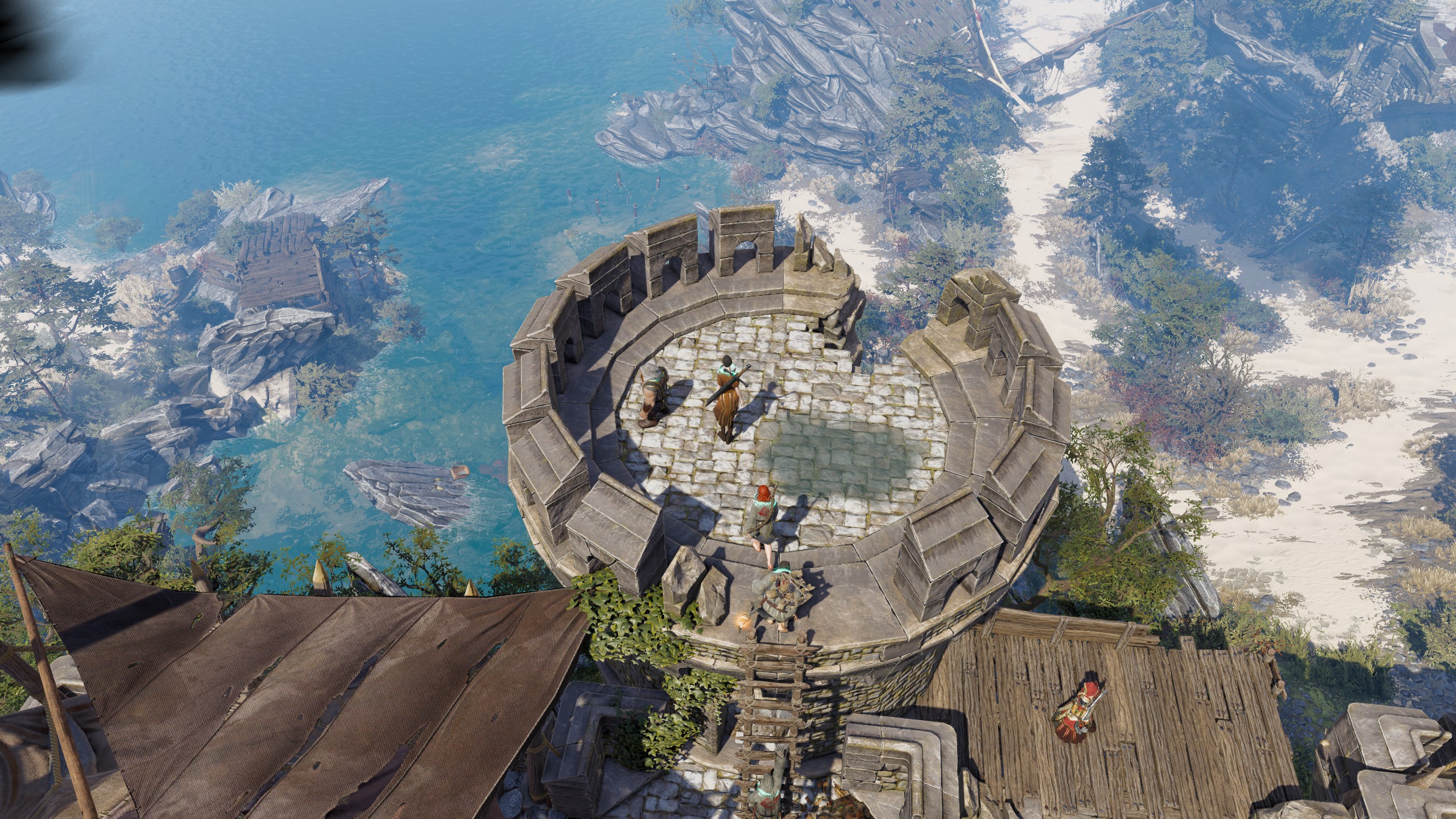
D:OS2 has an almost Diablo-like system of semi-random, leveled gear by comparison. I thrashed against that in my first playthrough, holding onto gear for longer than I should have or choosing equipment pieces based of secondary or tertiary benefits (stat bonuses, on hit effects) as opposed to their cold, hard DPS/armor values. That left me with underleveled gear and underpowered characters, especially in the final act of the game.
I fully embraced my equipment's throwaway nature this time, making the rounds every time I leveled up to purchase the latest stuff for my key slots. Once I went with the flow of D:OS2's constant stream of disposable magic swords, the game really clicked for me like never before.
I'd still rather have an RPG where the best gear is deliberately placed by a designer, lending this feeling of it being a reward and something you can sit with for a long stretch of the game, but Original Sin 2 is now the lone single player RPG whose leveled, semi-random loot system I don't mind, and even kind of appreciate.
Minoring in Divinity buildcraft studies
Original Sin 2's skill system intimidated me with its myriad complexities, but now that I understand it better, I'll be damned if it's not a thing of beauty. The completely modular system has no classes, only skills and attributes, with character creation choices offering helpful archetypes to inspire your builds.
There's no reason not to pursue fun, hybrid characters, especially when some of the game's best abilities are its goofiest and most unique. Even my edgelord dual daggers protagonist would cut loose with some chicken polymorphing and malicious teleportation.
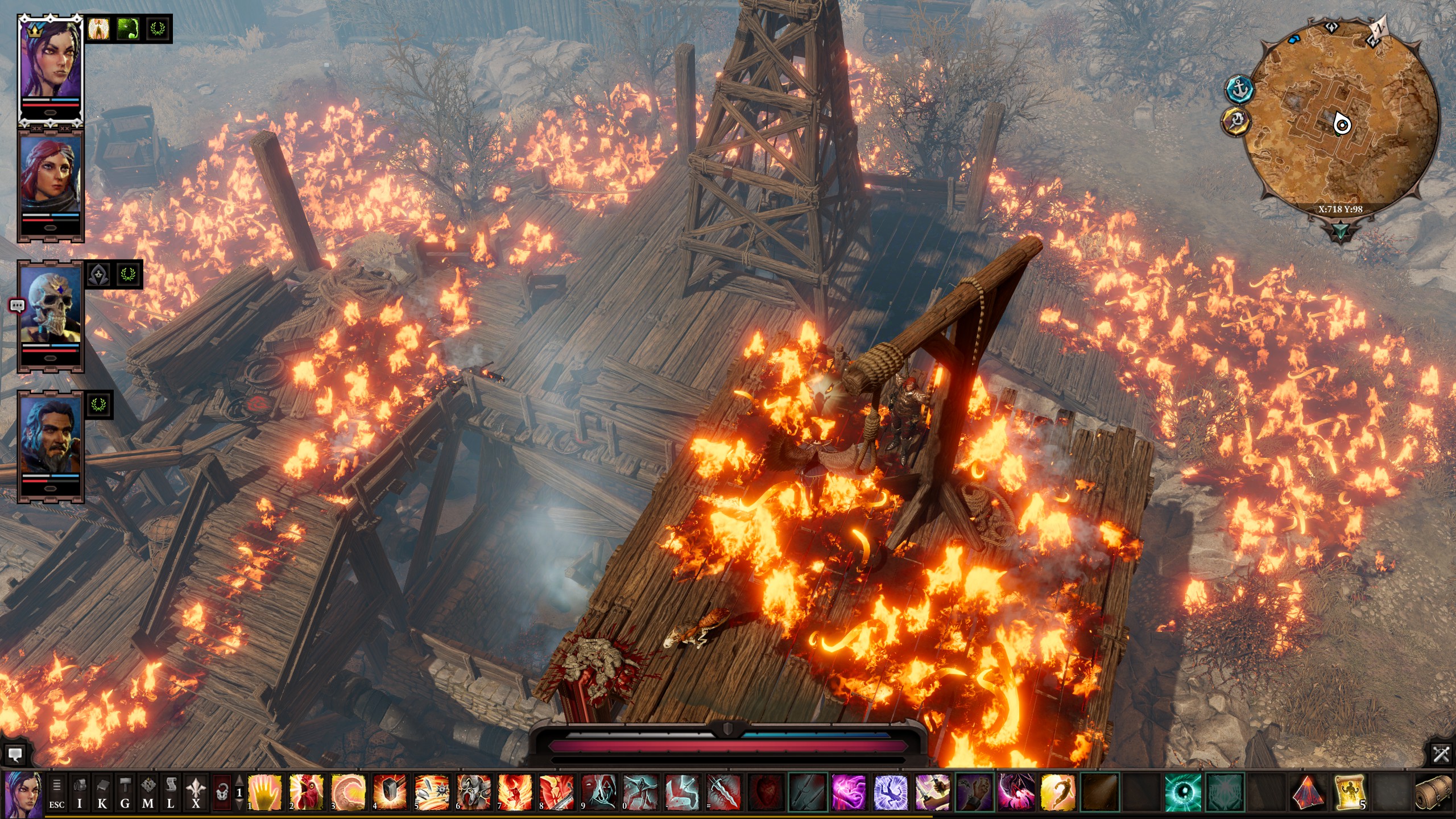
I had to dig into Reddit, YouTube, and Steam guides (shout out to Sin Tee, who's also probably the best in the game when it comes to BG3 builds as well) to get my accreditation on this stuff, because I still find Original Sin 2 a harder game than Baldur's Gate 3. I'll probably bump the difficulty from normal to Tactician my next go around of D:OS2, but I don't know if I'll ever touch its permadeath Honour mode. Meanwhile, I'm already halfway through one such playthrough of Baldur's Gate 3 as I write this.
"Many of the Original Sin 2 encounters are so deliciously devious, they're seared into my mind for life (in a good way)."
Original Sin 2 just has more curve balls in its fights, battles where you're handicapped out of nowhere or put under a stressful time crunch. There are plenty of encounters like this in Baldur's Gate 3 as well (Auntie Ethel, The Iron Throne), but D:OS2 is lousy with them. I'm of two minds about that: I appreciate not being pushed to my tactical limits in every fight of Baldur's Gate 3, while many of those Original Sin 2 encounters are so deliciously devious, they're seared into my mind for life (in a good way).
I felt like I was overcoming a trauma when I returned to one of the most evil fights in the game in my replay. You have to rescue an absolute dingus of a hostage at the top of this little fort while multiple waves of oil demons spawn in, followed by a battalion of fire demons who light the oil demons' oil slicks on fire. Your whole screen basically turns into mondo-damaging demon fire, and good luck if you want to keep John Q. Dingus-Hostage alive for more than a few rounds.
My first playthrough, I let that goober cook. This time though? I had multiple members of my party equipped with the teleportation skill, so I'd yoink the little dweeb out of the action every time he tried to rush in. I felt like one of those families who keep their indoor kid on a leash, snatching the little gremlin back every time they get into mischief.
Tacticool
Original Sin 2's armor system is a stroke of genius. Physical and magical crowd control only work once the respective defence is stripped away from a character, and while this incentivizes limiting yourself to an all-physical or all-magic damage party (my phys gang this playthrough could absolutely body the hybrid crew I had last time), it lends D:OS2's combat a rhythm like nothing else I've played.
Keep up to date with the most important stories and the best deals, as picked by the PC Gamer team.
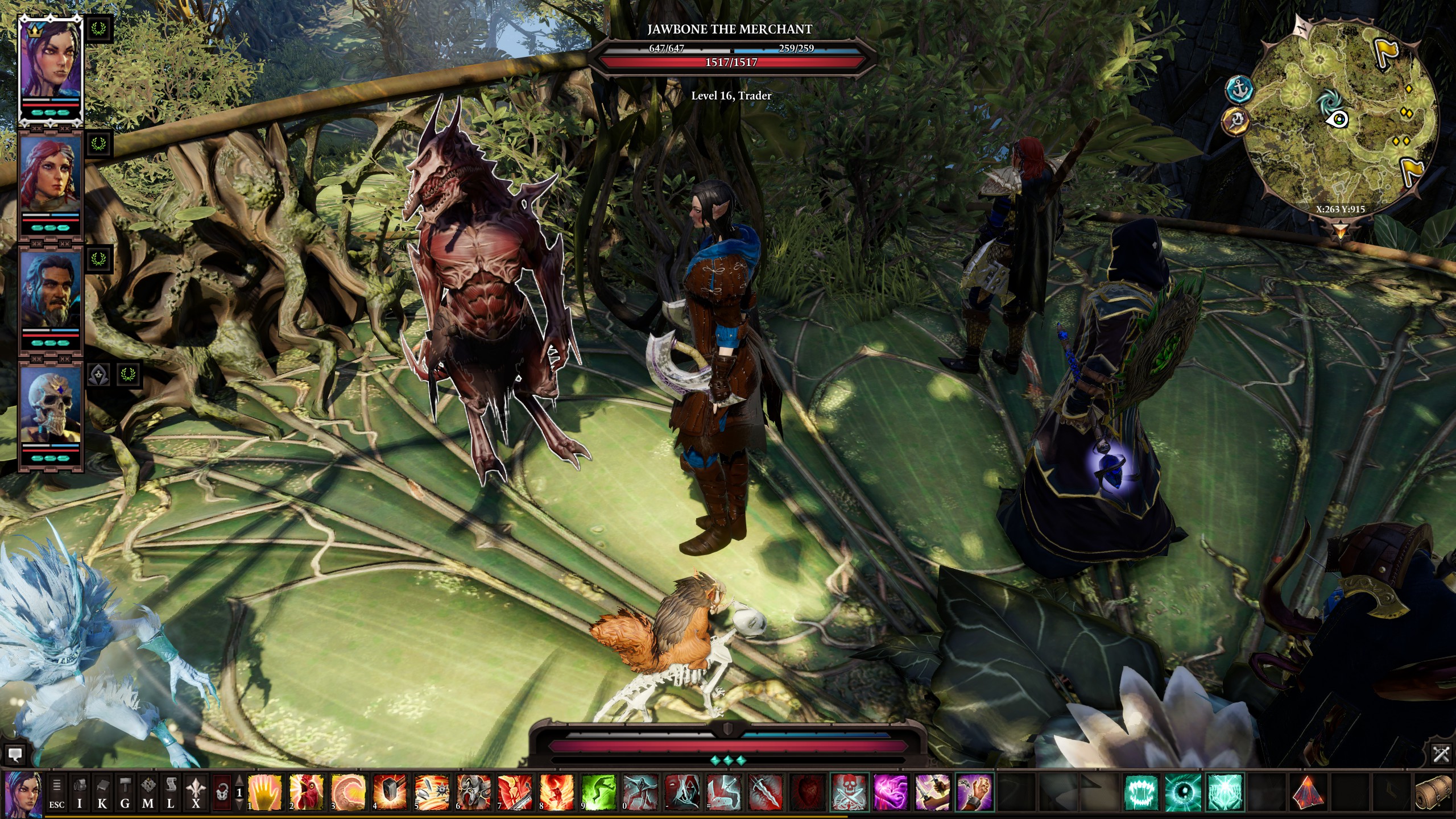
You really don't need a tank or support like in most RPGs—Original Sin 2 rewards pure aggression, a race to strip enemy protections and turn them into chickens before they do the same to you. It absolutely rips. While Baldur's Gate 3 is one of the best videogame adaptations of D&D's timeless rules ever made, those very same rules might have been holding Larian back—the studio has a real artistry when it comes to making this sort of stuff from scratch.
I don't think BG3 is a downgrade though: it moves the ball forward in Larian's immersive sim-style systems design, with better stealth, more freedom in how you interact with the world, and less of a sharp divide between combat and exploration. I also have to say that, much as I consciously appreciate D:OS2's combat and progression design, it's never colonized my brain in quite the same way BG3 managed to.
Playing a role
However much Original Sin 2 really stunned me with its skill system and mechanics, there's just no denying Baldur's Gate 3's belief-defying leap forward in storytelling, production values, and reactivity. I quite like Original Sin 2's characters and story, but I love the BG3 ensemble, and most of the gaming world seems to agree with me there. Larian beat BioWare at its own game with a winning cast brought to life by great animation and performance capture.
Baldur's Gate 3's written reactivity, the way it responds to so many granular character and story choices, is like dark magic. Divinity: Original Sin 2 feels generations behind in this regard, while Baldur's Gate 3 stands proud with games like Fallout: New Vegas or Disco Elysium in its myriad world states and extensive dialogue-based solutions to various quests.
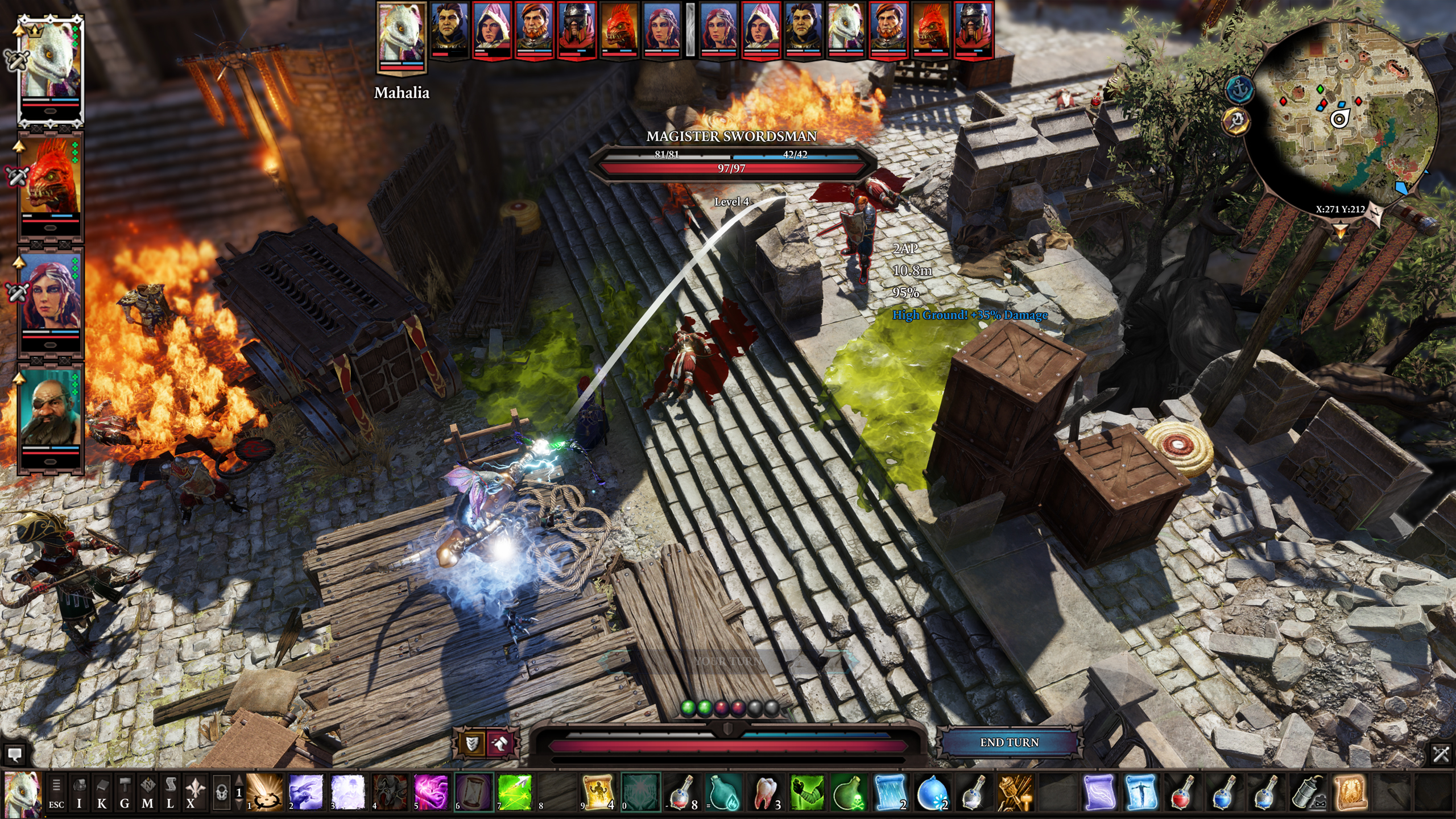
That's the big thing that strikes me, having played them more or less back to back: they're comparable tactical combat experiences, with D:OS2's skills and armor winning my mind and BG3's comfy D&D familiarity stealing my heart. But taken as holistic RPGs, there's just no comparison: BG3 wins the crown easily.
Finishing strong
Divinity: Original Sin 2's ending didn't sour the whole thing for me this time, but boy did it still piss me off. The whole game is all like "gods are evil, they stole their power, they manipulated you," but if you want a "good" ending for Rivellon, you have to become a god yourself or turn a fantasy mass-murderer into one.
They're comparable tactical combat experiences, with D:OS2's skills and armor winning my mind and BG3's comfy D&D familiarity stealing my heart.
Both times through I picked the commie ending where you give everybody in the world just a little bit of god juice, but the epilogue says that you basically create a permanent world war because everyone's an asshole and they need a strong hand to guide them. All my friends in the playable denouement scolded me for it too, and their disapproval will only make me pick this ending harder.
Also, Lhose broke up with me for no reason, it seems like she just does this to everybody? She kinda implied more that I was breaking up with her, and my only dialogue options were variations of "damn babe, well see you around I guess." Give me Baldur's Gate 3's big birthday bash for doing a good job over this every damn time I say.
Ted has been thinking about PC games and bothering anyone who would listen with his thoughts on them ever since he booted up his sister's copy of Neverwinter Nights on the family computer. He is obsessed with all things CRPG and CRPG-adjacent, but has also covered esports, modding, and rare game collecting. When he's not playing or writing about games, you can find Ted lifting weights on his back porch.

